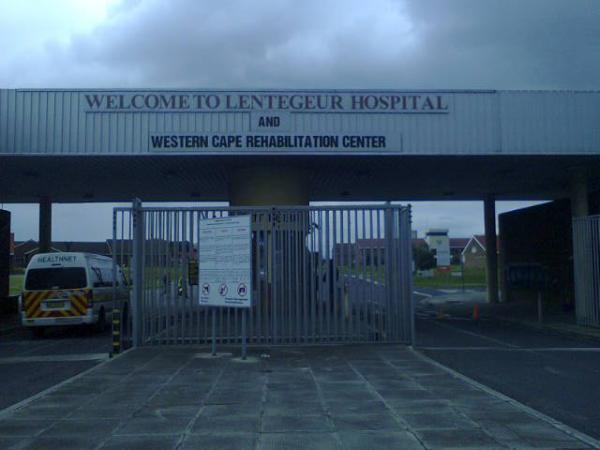Mental health care in Khayelitsha: an interview with the provincial government

October is mental health care awareness month. We take a look at mental health care services on the Cape Flats and what is available to people with a mental health illness.
Cynthia is a mother of 41 year old Andile (surnames deliberately removed) who was born without any mental health problems. Cynthia says Andile was a respectful son that loved and enjoyed going to school. But problems started in his matric year when Andile started showing signs of mental health problems. At the time Cynthia did not know what was wrong with her son. “All of a sudden he did not want to go to school and became very aggressive. He was very angry and went back to being a child again,” explained Cynthia.
“I had to go back to ensuring that Andile was bathed. I took him to school before going to work. He would hide behind the door when his friends came to visit him. He also had an aggressive appetite,” explained Cynthia.
The family was puzzled about Andile’s condition. He was then diagnosed with schizophrenia and depression by their family practitioner who referred him for treatment to the clinic in Site B Khayelitsha.
Ian Proudfoot, a doctor with Medecins Sans Frontieres (MSF), says there are inadequate resources to deal with the psychiatric disease burden. Proudfoot is currently doing a study that is screening HIV-positive people for mental health illnesses who are failing antiretroviral treatment. Doctors are concerned that mental health in people with HIV is linked to poor adherence and therefore more death and illness. “We want to identify [people with mental health problems] and get them to access treatment. But it is impossible to screen 25,000 people taking antiretrovirals in Khayelitsha for mental illness. We just do not have the resources and that’s why we’re focusing on a small group that is expected to have a mental illness.” explained Proudfoot.
Interview with the Western Cape Government about mental health services
GroundUp interviewed the Western Cape Government’s Director of Communications, Faiza Steyn, about mental health facilities in Khayelitsha.
GroundUp: What mental health services are available to the Khayelitsha community?
Steyn: There are three mental health clinics in each of the Community Health Centres (Site B, Site C, and Michael Mapongwana), with one to two dedicated mental health nurses in each clinic. The mental health team in Khayelitsha consists of six mental health nurses, 3 Social Workers, 3 Occupational Therapists, 1 Occupational Therapist Assistant and 1 Community Service Psychologist. In addition, the Khayelitsha District Hospital has a nurse and a doctor with outreach support from a District Specialist Psychiatrist.
Further to these there are various Non-profit organizations which are funded by the WC Govt Health, who provide mental health services to the community.
GroundUp: What are the statistics for the burden of mental health disease in Khayelitsha?
Steyn: It has been estimated that 31% of the population over the age of 16 years suffers from some form of mental health disorder (This translates to 154, 500 people in a population of 500,000). It is estimated that 17.6% of those with a mental health condition would fall into the severe range. It is estimated that the one year prevalence of mental health issues for children under the age of 16 years is 20% (40,000 individuals.) The vast majority of mentally unwell people, have anxiety and depression. [See the references supplied by Ms Steyn at the end of the interview. - Editor]
GroundUp: How well is the current system of care meeting this need?
Steyn: There is a comprehensive effort in Khayelitsha to improve the current mental health services in the area. This includes utilizing a mental health co-ordinator for the sub-district of Khayelitsha & Eastern Metro as well as to recruit a Specialist Psychiatrist with sub-specialization in Child and Adolescent Psychiatry, to conduct a situational analysis of the existing system of care in the area.
GroundUp: What efforts are being made to meet the identified need?
Steyn: Amongst others:
- Utilizing a more comprehensive and integrative approach.
- Rehabilitation, Prevention and Health Promotion.
- Efforts which deal with common disorders such as depression and anxiety which can have potential socioeconomic implications for the community.
- Integration of mental health care at Primary Health Care (clinics and district hospital) level and stronger links between the facility, community, and regional hospitals are also being improved.
- The Western Cape Health Department is also training 300 Community Care Workers in Khayelitsha in mental health care currently so as to improve services at the community level.
References for mental health statistics supplied by Faiza Steyn
Lund et al et (1997), A model for calculating MH resources and service needs for people with severe psychiatric conditions in south Africa
Williams et al. Twelve-month mental disorders in South Africa: prevalence, service use and demographic correlates in the population-based South African Stress and Health Study, S Afr Med J. 2009 May; 9: 339-344.)
Lund et al (2009) Scaling up child and adolescent mental health services in South Africa
Support independent journalism
Donate using Payfast

Next: Tokai forest in spring
Previous: Cold war echoes and trade union reform

This article is licensed under a Creative Commons Attribution-NoDerivatives 4.0 International License.
